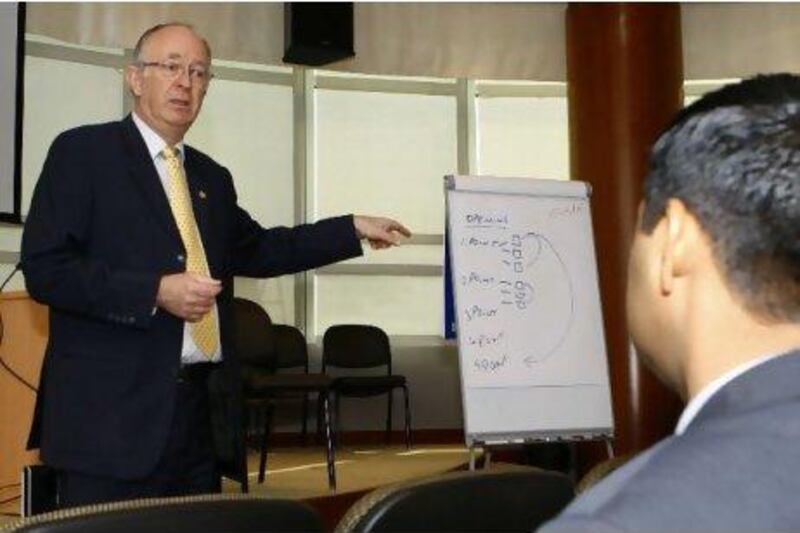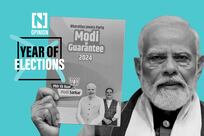Ladies and gentlemen, thank you very much for your time.
Actually, let me start that again.
By the end of this, you will know one man's secrets on how to begin a presentation - and keep an audience engaged - so that no one ever falls asleep the next time you have to speak in front of colleagues or at a conference.
"I rarely say 'ladies and gentlemen' as an opening line because every other speaker does that," says Graham Moore, who has been speaking professionally for 18 years and now works as a consultant on the topic for Abami Consultancy & Training in Dubai. "My objective as a speaker is to engage the audience. I'll do whatever I need to do to engage the audience."
In the professional world, there seems to have been somewhat of a backlash lately against poor presentations. A survey released in the US last month found that nearly 30 per cent of working professionals have sneaked out of a presentation at least once in their career, while 32 per cent admit they've fallen asleep during one. One-fifth of these individuals also note that they have fallen asleep so many times halfway through a presentation that they've lost count, according to a survey commissioned by SlideRocket, a company that provides services on enhancing workplace presentations.
Mr Moore recently shared some pointers from his own personal tip sheet on how to give a presentation:
Provide a brief biography
"Too many presentations kick off with a multi-minute introduction of the speaker. Rather than provide a complete biography to a master of ceremonies (MC), offer just key elements so the introduction "creates a certain anticipation", says Mr Moore. "We want to hear from you, not [get] your life history."
Acknowledging the MC is a polite gesture, but don't elaborate on a "thank you" with details such as "that was a lovely introduction" because guest speakers tend to write the introduction in the first place.
Making a first impression
The most important part of making the right first impression boils down to the opening line. "Once I'm introduced I'll have an opening line that's particular for what my presentation is that will grab their attention from the start," says Mr Moore. "I believe it's important to gather interest from the audience in the early part of the process."
One tactic that may work in a room of Emirati businessmen and businesswomen is to use the greeting, Salam Alaikum. "I understand when it's appropriate to do that," says Mr Moore. "In a way, they're not always expecting a dude like me who's not wearing a khandoura to say Salam Alaikum. Engagement is critical."
Keep the audience engaged
Whether someone's presenting to a boardroom of executives, group of clients or team of colleagues the basic elements of giving a presentation remain the same, says Mr Moore.
"I want to convey some information to you, and I want you to do something with that information I'm giving you," he explains.
Of course, the content of a presentation depends on the specific audience. But there are some key questions that Mr Moore always asks himself before he prepares his notes on a topic: Who am I speaking to? What do they want to hear from my presentation? And, the detail that's most often looked over, where am I speaking?
This latter point relates not only to which country or culture of individuals but also the actual room. When Mr Moore had to present near the top of a high-rise office building in Melbourne, Australia, one day, he immediately asked about the layout of the room upon his arrival. Realising he would be speaking in a boardroom, with his back to the window that overlooked a nice view of the city, Mr Moore asked if he could stand at the opposite end. Otherwise everyone would squinting at him or gazing out the window. "I want them to be looking at me, and not distracted by other things," says Mr Moore. "Speakers have to have control over the environment."





